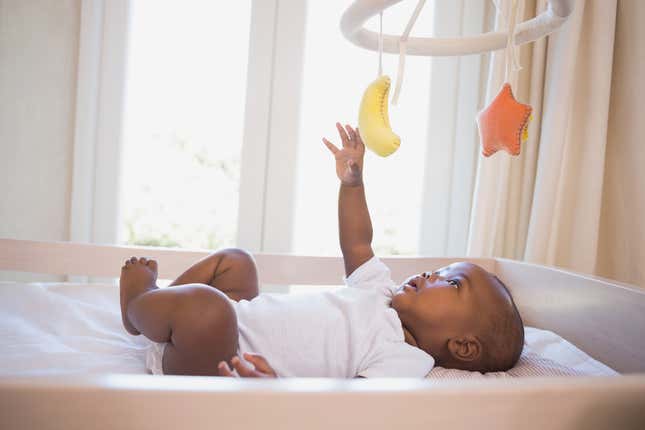
The pandemic has helped usher in a decline in new babies being born in America, continuing a trend of diminishing birth rates that threatens the replacement levels of the country’s population.
A CBS News report says data across two dozen states in the U.S. shows that a seven percent drop in births was recorded in December, nine months after the coronavirus pandemic began.
And Brookings Institute has already flagged the alarm that there will likely be 300,000 fewer babies born in 2021, compared to the number born in the most recent years, as a consequence of what they call a COVID “baby bust.”
Predictably, the people whose job it is to analyze these trends are pointing out that a reduction in the replenishing of the population spells doom for the usual functioning of society.
Dowell Myers, a professor in urban planning and demography at the University of South California, told CBS the situation is a crisis. Especially since the number of Americans who are 85 and older is expected to double by 2040.
“We need to have enough working-age people to carry the load of these seniors, who deserve their retirement, they deserve all their entitlements, and they’re gonna live out another 30 years,” said Myers. “Nobody in the history of the globe has had so many older people to deal with.”
While I love the elderly and hold dearly to the dream of becoming a mother, neither sentiment is enough reason for members of my generation—the oft-maligned millennials—to get to procreate.
The pandemic’s upending of employment, housing stability, and the very health of Americans has impacted Black people in this country more than almost any other group—and employment and shelter are some of the bare minimum support for taking care of a child.
But these problems existed even before the pandemic, in a country that itself seems to have an antipathy for everything that would encourage people to have children, except outright forcing women to do so through attacks on access to abortion.
America is the only country in the developed world to not provide its citizens with paid family leave—or paid sick leave for that matter. So even before contemplating the increased demand for senior caregivers in the future, let’s reckon with the reality that if you are pregnant in this country, there is no guaranteed safety net to ensure you can take care of yourself and the health of your unborn child unless you have a partner who can financially support the household on a single salary, or you work as far into their pregnancy as is feasible—particularly since right around the corner of labor is the urgent ticking clock of having to return to work after giving birth, in order to earn necessary income to support your growing family, or simply to avoid losing the job completely.
And that’s alongside grappling with the massive student loan debt and economic insecurity that has battered the millennial cohort of Americans especially.
Then there’s the global specter that is the climate crisis, which threatens to sink major cities like New York City, Shanghai and Rio De Janeiro in our lifetimes if the world’s most powerful nations (and culpable polluters) don’t work together to slow emissions that are driving dangerous increases to the globe’s temperature.
It’s no wonder many of us aren’t eagerly introducing new humans into the world, no matter how much we may want to.
The pandemic hasn’t made it any easier. The hell-on-earth that is online dating hasn’t gotten any better while many of us have been locked down and contemplating the meaning of life or coping with existential despair. Meanwhile, millions of Black Americans—women especially—have had to work on the front lines in essential jobs that are often underpaid and absent of basic protections like paid sick time, even as the fatal and highly contagious coronavirus has spread. And Black women have suffered the highest rate of job losses during the pandemic than any other demographic. While white women, white men and Black men have gained jobs between December and this January, Black women have seen their unemployment rate go up in that same period.
“The longer the pandemic lasts, and the deeper the economic and social anxiety runs, it is feasible that we will see an even larger reduction in births with an increasing share of them averted permanently,” Brookings Institute said in its warning about the anticipated dearth of new babies.
It’s the pandemic yes, but it’s also a whole system built on breeding economic, social and racial anxiety. I don’t know about you, but striving to keep myself alive amidst such a harrowing and stressful reality does not make me feel randy—or ready to go half on a baby.

